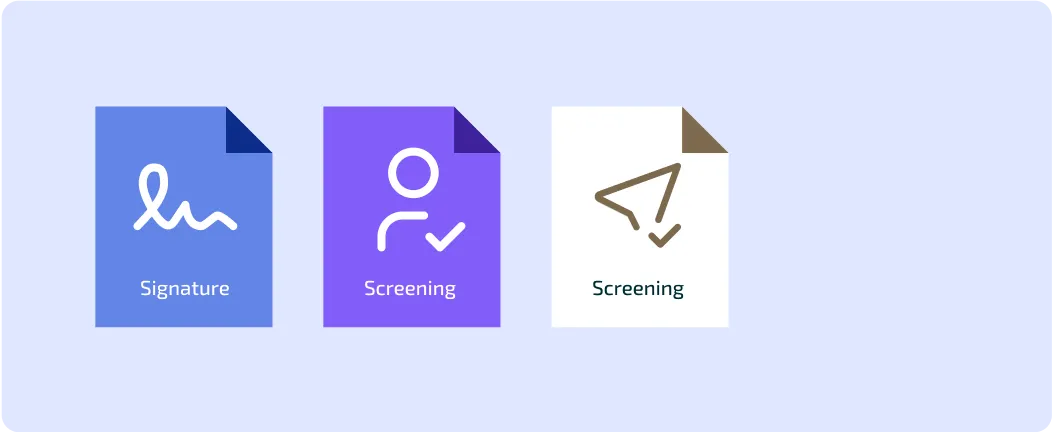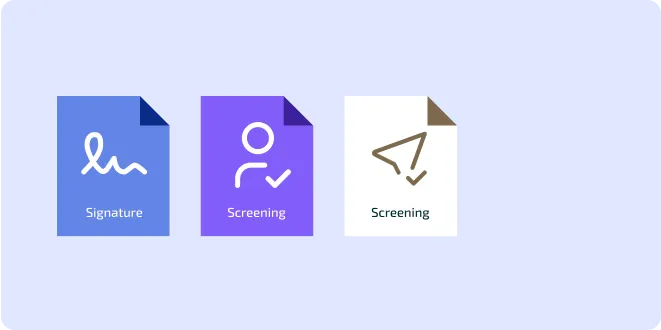.webp)
Published on
March 18, 2025
Kuwait Faces FATF Scrutiny for Money Laundering Shortcomings
In this story

Accelerate AML Compliance: Meet Regulatory Demands with 80% Less Setup Time
.svg)
.svg)
Kuwait has set up laws and regulations to help fight illegal money activities. However, the country finds it hard to turn these rules into real success, especially when it comes to understanding, investigating, and prosecuting money laundering and terrorist financing.
Current Legal Landscape
A recent report from FATF/MENAFATF has looked into how Kuwait is handling money laundering and the funding of terrorism. This report gives a clear view of how well these efforts are working and whether Kuwait is following the FATF guidelines.
- Established laws aimed at combating money laundering.
- Regulatory efforts lacking effective results.
Understanding the Challenges
Even though Kuwait is a wealthy nation with low levels of violent crime, it still faces risks of money laundering related to:
- Fraud
- Corruption
- Forgery
- Crimes beyond its borders
Additionally, the country deals with threats from terrorist financing tied to groups that operate outside its territory.
While Kuwait knows about the risks of money laundering, its understanding of terrorist financing is not as strong. Officials need to improve their risk evaluations, particularly regarding:
- Non-profit organizations
- Misuse of legal entities for laundering purposes
Comply quickly with local/global regulations with 80% less setup time
.svg)
.svg)
Insights from FATF/MENAFATF Report
Although more money laundering investigations are taking place, obtaining convictions proves challenging because proof of the original crimes is often missing. Most cases that go to court involve simple self-laundering. The problem gets worse with terrorist financing; investigations and prosecutions are rare, often failing to lead to convictions.
Key findings from the FATF/MENAFATF Report
- Significant weaknesses in handling terrorist financing.
- Assessment of compliance with FATF recommendations.
Improving Investigative Efforts
Kuwait has laws to impose financial penalties against terrorist financing and the spread of weapons of mass destruction. However, gaps in the legal system make it hard to freeze assets tied to these activities effectively.
Kuwait has looked at the risks in its non-profit sector but needs a better approach to protect these organizations from terrorist financing while also supporting legitimate efforts. The financial intelligence unit produces useful information to kick-start money laundering investigations, but many inquiries into terrorist financing depend on foreign intelligence.
Read more: Fraud Investigation: Types, Processes and How to Conduct it in 2024
The Role of Financial Institutions
Kuwait is determined to seize criminal proceeds and has managed to take valuable assets, including properties in other countries. Most financial institutions understand their risks and responsibilities well. However, supervisors in both financial and non-financial sectors need to focus more on beneficial ownership issues.
Current Challenges
- Lack of a complete and reliable system for tracking beneficial ownership information.
- Weakens efforts in combating illicit finance.
Future Steps for Kuwait
FATF, the global watchdog for anti-money laundering efforts, recently confirmed that Kuwait has a solid legal framework but still faces "serious shortcomings in delivering effective outcomes." Their press release about Kuwait's progress highlighted significant weaknesses in handling terrorist financing.
While banks and larger financial companies understand their duties, regulatory supervisors in different sectors must improve their grasp of beneficial ownership issues.
Proposed Solutions
This challenge isn’t just about the laws; it’s about how effectively those laws are enforced. Without proper execution, even the best laws can fall short. For Kuwait to strengthen its fight against money laundering and terrorism financing, a shift in focus is essential. This means not only refining existing laws but also ensuring that all players in the financial system are educated about their responsibilities.
Moreover, the role of training and resources for investigators cannot be underestimated.
Read more: What are the Five Pillars of AML Compliance?
Key recommendations
- Equip law enforcement with better tools and knowledge.
- Create a culture where compliance is prioritized.
The FOCAL Platform: Transforming Financial Compliance and Security in Kuwait
The FOCAL Platform streamlines compliance processes in Kuwait's financial sector by automating key functions to meet strict regulations from the Central Bank and the Financial Action Task Force (FATF).
It facilitates efficient Know Your Customer (KYC) compliance through automated Customer Due Diligence (CDD) and employs real-time analytics to monitor transactions, flagging suspicious activity to reduce manual reviews.
FOCAL enhances risk assessment by utilizing advanced algorithms to generate accurate risk profiles and dynamic risk scoring based on transaction size, frequency, and geography.
How FOCAL Can Benefit Kuwait 's Institutions Specifically
1. Aligning with Global Standards
To enhance its reputation as a compliant financial hub, Kuwait's institutions must align with international standards. By implementing FOCAL, organizations can meet FATF recommendations and strengthen Kuwait’s global standing.
2. Promoting Financial Stability
A robust compliance framework is essential for financial stability. FOCAL enhances risk management, protecting institutions from penalties and fostering consumer trust, which encourages investment.
3. Facilitating Economic Growth
A secure financial system promotes economic growth. FOCAL enables institutions to operate more efficiently, reducing compliance costs and potentially lowering fees for consumers, thereby encouraging broader participation in the financial system.
Conclusion
Kuwait’s legal landscape needs to adapt. Strengthening connections with international partners and agencies can help fill gaps in information and resources. Cooperation will lead to better sharing of intelligence and best practices, enhancing Kuwait’s ability to combat these pressing issues.
Public awareness also plays a critical role. Educating citizens about the risks associated with money laundering and terrorist financing can help create a community that actively supports prevention efforts. By fostering a culture of vigilance and compliance, Kuwait can build a stronger defense against these threats.
In conclusion, Kuwait is on the right path with its legal and regulatory framework but must enhance its efforts to effectively combat money laundering and terrorist financing.
Streamline Compliance: Achieve 80% Faster Setup for Fraud Prevention
.svg)
.svg)

How Aseel reduced onboarding time by more than 87% using FOCAL
Learn how FOCAL empowered Aseel to achieve new milestones.
.svg)
.svg)
Mastering Fraud Prevention: A Comprehensive Guide for KSA and MENA Businesses
51% of organizations fell victim to fraud in the last two years, don't be caught off guard, act proactively.
.svg)
.svg)
Featured blog posts
.svg)





AI-Driven Precision in Fraud Risk and AML Compliance
.svg)
.svg)

.svg)
.png)






.webp)




.svg)








%20(1).webp)
Comments
Leave a Reply
Comment policy: We love comments and appreciate the time that readers spend to share ideas and give feedback. However, all comments are manually moderated and those deemed to be spam or solely promotional will be deleted.